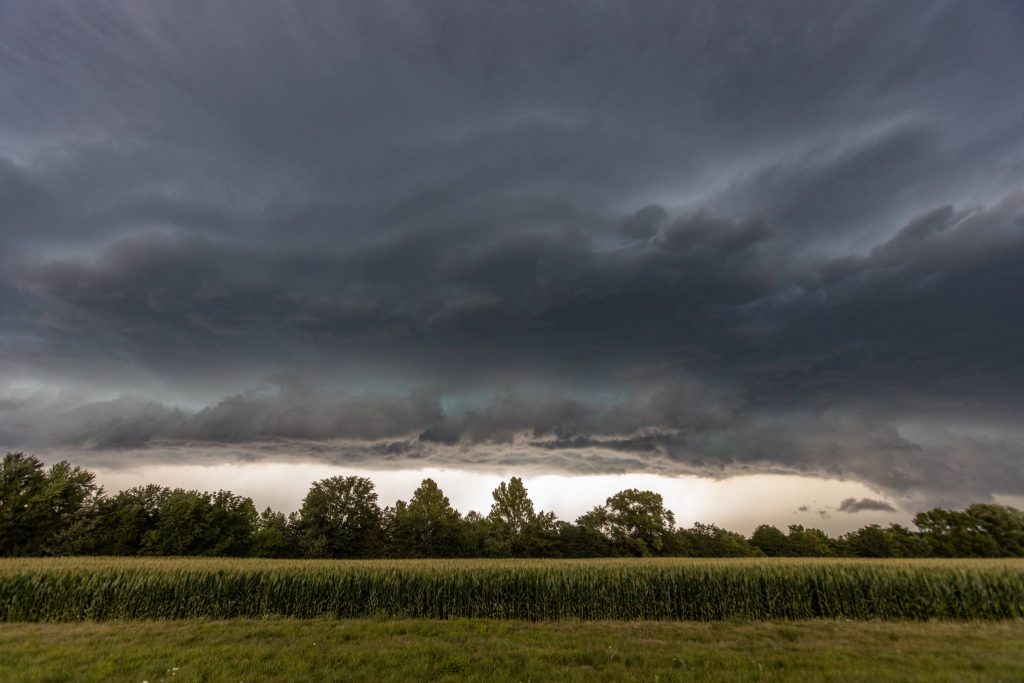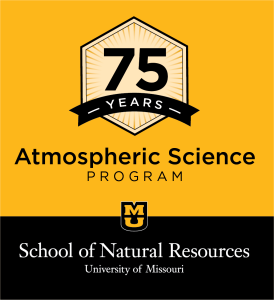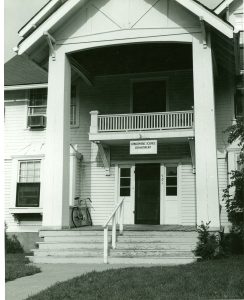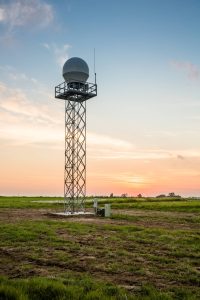
Whether it’s a warm, sunny morning, ominous rumbles and dark skies signaling an approaching storm, or quiet snowflakes in winter, weather is an ever-changing companion that touches the lives of every person. Thinking about all the ways weather impacts our daily lives, it’s only fitting that a significant milestone gets its day in the sun as Atmospheric Science at Mizzou celebrates 75 years of research, forecasting and preparing students to be the next meteorologists.

The inception of the Atmospheric Science program at the University of Missouri College of Agriculture, Food and Natural Resources (CAFNR) was in 1948. Dr. Wayne Decker founded the Atmospheric Science program at Mizzou and bestowed nearly five decades of his expertise in climatology and long-range forecasting to countless students, retiring in 1992.
Delores Knipp (MS Atmospheric Science ‘84; BS Agriculture ‘76) is a research professor at the Space Weather Technology, Research and Education Center at the University of Colorado where she studies the weather and environment in space, but she grew up on a farm in mid-Missouri.
“I loved weather and was pretty good at math, too,” she recalls. “From then on, it was ‘how can I study both?’”
Knipp knew without a doubt that she wanted to attend the University of Missouri, but coming from a small rural town, stepping foot on campus felt like a new world. Once she found the Atmospheric Science department, she felt at home.
The department was originally located in a converted residence on Missouri Avenue in the heart of the MU campus, located immediately north of the General Classroom Building (now Strickland Hall.) The department was moved to a converted cooperative house at 701 Hitt Street in late 1969. Many former students fondly remember the ‘little white building on Hitt Street.’

“The minute I walked up there, I thought ‘this looks like an old farmhouse. It’s comfortable.’ I found that comfort zone and that same level of individual caring from Dr. Decker and Dr. (Grant) Darkow,” Knipp says.
“Even though I was on a huge university campus, I had a little home. I had a niche.”
Patrick Market, director, School of Natural Resources, talks about the technology transitions he’s seen during his time at Mizzou.
“The biggest thing for me (in 1999) was when I arrived, we had two Gateway 2000 computers running Netscape, and we were pulling a lot of our data from Ohio State.”
“Within a year or two, we had a small prototype of what we now call the WAV Lab. We started getting data – not just images – and we created what we needed here at MU. We were no longer beholden to any other university’s website for our students to analyze data,” Market said.
Tony Lupo, professor of atmospheric science, recalls being the youngest faculty member when he came to the atmospheric science program at Mizzou in 1997.
“Before I arrived, I knew of the department. I knew it was a quality department,” he said. “When I was a student, I knew of Mizzou because it was associated with our founding professors that came before me. And today, this program is associated with myself and my colleagues.”

Reflecting on the 75th anniversary year, Lupo shared, “I’m sure that our founders would all be proud of what we’ve done with the department coming after them. The equipment has been upgraded, we have our own radiosonde launch for weather balloons, we have our own radar, which is something that not all meteorology programs have.”
Lupo’s advice to students who will represent the future of this program is to be strongly grounded in weather but stay up to date on other topics affected by the weather because research is so interdisciplinary. “Get that strong grounding in meteorology,” he said, “but know that there’s so much more out there.”
Many of the current and former students who have come through the meteorology program say that one of the most impactful experiences they had is the ability to immediately jump into hands-on learning and research alongside their professors, even as undergraduates. Being able to use professional software and instruments from an early stage of their academic journey is an opportunity they feel propels them to be better industry professionals.
Christina Crowe (BS Soil, Environmental and Atmospheric Science ‘07), master instructor at National Weather Service Leadership Academy, and current president of the National Weather Association, recalls her fascination with the weather beginning in fourth grade after reading The Night of the Twisters and watching the skies turn green, knowing a storm was imminent.
“I knew in high school that I was going to go meteorology,” she said.
Crowe wrestled with the decision to follow in her two older brothers’ footsteps when choosing a college, or to venture out and go somewhere different.
“I looked at other programs, but I kept coming back to Mizzou,” she said.
Because her brother was already attending Mizzou, Crowe came to visit him, and on that trip, she gained an inside look at the Atmospheric Science program while she was still in high school.
“Dr. Market allowed me to sit in on one of his meteorology classes. It was both seeing him as a faculty member engaging with the class and talking to the students about their experience on the Storm Chase Team, and being involved in research projects as undergrads that got me really excited about this program,” she said.
Patrick Guinan, associate professor emeritus and former state climatologist, recalls coming to Mizzou in 1988 to pursue a doctoral degree in atmospheric science. “Little did I know,” he said, “that my arrival would translate to an education and career in atmospheric science at Mizzou for 34.5 years. It has been a wonderful ride from the time I arrived to the day I retired earlier this year.
“Over the years, I came to realize how respected and admired Dr. Wayne Decker was in his profession. He was a pioneer in the field of Agricultural Climatology, and his contributions and impacts are still seen today. He understood the importance and value of environmental observation,” said Guinan.
“Thanks to Dr. Decker’s initial endeavors, and to many individuals who succeeded him, the Atmospheric Science program remains strong and vibrant today.”